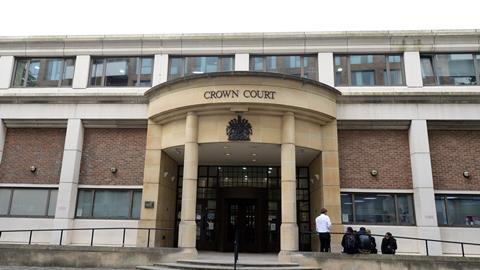The government today unveiled a fresh round of eight proposed court closures as part of its ongoing modernisation programme in a move described by the Law Society as putting the cart before the horse.
HM Courts and Tribunals Service says work can be done away from physical court buildings and believes some courts are an unnecessary financial burden.
The eight closures, proposed in five separate, regional consultations are:
- Banbury Magistrates’ and County Court
- Maidenhead Magistrates’ Court
- Cambridge Magistrates’ Court
- Chorley Magistrates’ Court
- Fleetwood Magistrates’ Court
- Northallerton Magistrates’ Court
- Wandsworth County Court
- Blackfriars Crown Court
HMCTS points out people can make a number of claims online, including filing for divorce, challenging rogue traders for debts and making a tax appeal, reducing the need for actual court buildings.
In criminal courts, the increasing use of video links and the ability to enter online pleass for low-level motoring offences have also cut the burden on court access.
Justice Minister Lucy Frazer said: ‘This government is investing over £1bn to reform and modernise the justice system – making it more convenient, easier to use, and providing better value for the taxpayer.
‘As we increase the use of digital services, it makes sense to consider the wider role and need for court buildings and assess whether some are still necessary to provide effective access to justice. Where physical courts are to close, every penny raised will be put back into funding changes which will make justice easier to access for all at the same time as offering protections for the most vulnerable.’
In London, the Wandsworth and Blackfriars closures are proposed on the basis that services can be delivered at other sites, and HMCTS says there is potential to further consolidate the courts estate in the capital. This could include potentially closing Inner London Crown Court, described as having ‘serious maintenance issues’ in the future.
Blackfriars is one of a handful of courts earmarked for the extended court hours pilot, and HMCTS has said this location may be reconsidered in light of the consultation and feedback from the profession on the pilot.
The government says it has raised around £115m from building sales in recent years, having closed more than 200 courts and tribunals buildings since 2011. This money has been put back into modernising the remain courts services.
Susan Acland-Hood, chief executive of HMCTS, said: ‘The history of HMCTS means that we often have multiple buildings in the same town; and have many courts and tribunals in places where no thoughtful planner would put them if designing the system now. Having many more ways to access justice without travel, and having fewer, better buildings, that are well-located and well-connected, welcoming, easy to use, and in good condition, will both give us a better justice system, and release resources to make it sustainable.’
However Law Society president Joe Egan described the decision as premature: ’It seems unorthodox at best that HMCTS are looking at eight court closures while at the same time consulting on the principles. The government is spending a great deal of public money making the court estate fit for 21st century justice, but the absence of a strategy is all too evident.
’We know from experience that once a court has been identified for closure, it is difficult to change this decision. HMCTS should not be making any final decision on individual courts before agreeing the principles it is working to develop.’
Egan added: ’We support government efforts to improve court efficiency through better use of technology. However, the modernisation process will take time. Any individual court closure is a matter of local concern and 10 weeks’ notice for a consultation is insufficient.’
The Ministry of Justice announced in February 2016 that 86 of the 91 courts it had consulted on would close. Most of those 86 have now been closed and the buildings sold.
As at the end of November the courts estate had a total of 350 buildings, including 94 Crown courts, 160 magistrates’ courts, 210 county courts and 141 tribunals. This number is expected to be trimmed to 339 if the latest closure proposals go through.
Each of the five consultations closes on 29 March.




























20 Readers' comments